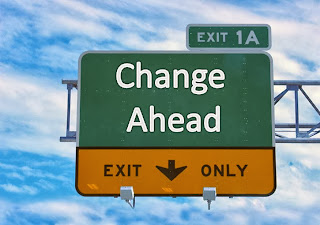Policy Changes in Home Mortgage: How does it affect your mortgage eligibility?
Real estate industry has shown significant signs of improvements in the past few years.
According to the latest industry analysis, several changes are being carried out in the process of getting a home mortgage. The government is trying to shrink its role in the mortgage industry and it is quite possible that the eligibility rate for home mortgages could drop significantly in the next few years.
If you are trying to get a mortgage, here are some important
changes that might affect your mortgage eligibility.
- Increase in interest rates: According to the experts, there are chances that the interest rates might increase on home mortgages. The improvement in economy will affect the efforts of the federal authorities in keeping the interest rates low. Feds could withdraw their efforts in near future leading to higher interest rates. There are speculations that an average customer might have to pay up to 25 percent more on their monthly mortgage payments.
- High government fees (G-fees): Government fee is a small amount that every borrower pays and it covers for the cost of selling loan and risk involved in the process. G-fees might rise by 20 points and an average customer would have to pay $360 per year ($72 at present) for a mortgage of $200,000.
- FHA lowers cap for house loans: FHA is planning to lower the mortgage cap to $625,500 as compared to the current cap of $729,750 (for expensive counties). The good news is that this change will affect only 5 percent of the borrowers as per the records of HUD.
- Extensive paperwork for loans: From 1 Jan 2014 onwards, the government will enforce extensive paperwork to lower mortgage abuse and control unsafe loans. The borrowers would be required to provide multiple income proofs and documents supporting their eligibility for the loan.
- Debt-to-income level will decide eligibility: We can expect a drop in eligibility rate as the new rules will reject borrowers with a debt-to-income ratio higher than 43 percent. It means the consumers would be required to pay down their mortgages to be eligible for a house loan.
- Strict rules for self-employed professionals: According to the experts, self-employed professionals and small business owners will find it difficult to get a loan in the upcoming months. The lenders often prefer borrowers with a steady paycheck instead of an inconsistent income stream.
- Lower-income borrowers will face difficulty in loan approval: The loan approval process will get a lot tougher for the non-traditional borrowers. This rule is going to affect minorities, young couples, and first-time homeowners.
- Payday-type lenders will increase in number: Low-credit borrowers will find it difficult to get a government-backed loan. However, this will give rise to the “non-qualified lenders” and the borrowers might have to pay higher interest rates. We can expect more payday-type loans in near future.
- Hard to get 30-year mortgage: With the government trying to shrink its participation in the mortgage industry, loan term loans will become rare. Because of the risks involved in long-term mortgages, adjustable-rate mortgages might gain popularity among the lenders.
Along with these major changes, smaller loans and unsafe
mortgages will disappear from the market. In short, these policy changes will
affect a major portion of the consumers and it is time to get your mortgage
loan processed before the policy changes.

Comments
Post a Comment